-
Content count
913 -
Joined
-
Last visited
-
Days Won
6
Posts posted by Sir Darius the Clairvoyent
-
-
-
I started with basic mat, based on my first name. Then i read something about Spinoza that resonated; natura naturans - nature natures. Cant argue with that.
For some reason I highly resonated strongly with sol invictus, fire symbolism and Isha upanishad:
16. O Sun, sole traveller of the Heavens, controller of all, Surya, son of Prajapatiremove thy rays and gather up thy burning light. I behold thy glorious form; 1 am he, the Purusha within thee.
So thats where the username and profile pic comes from, and my background pic is the iconic painting «the creation of Adam.» I think the «so close, but allways slightly Out of reach» is so true and beautifull.For my signature I went to the king of the Aesir, the all-father, and what he reported after having been iniated (not saying i am that):
SpoilerI know that I hung on a windy tree
nine long nights,
wounded with a spear, dedicated to Odin,
myself to myself,
on that tree of which no man knows from where its roots run.No bread did they give me nor a drink from a horn,
downwards I peered;
I took up the runes,
screaming I took them,
then I fell back from there. -
-
Allow me to share some «scripture» (or old wisdom, i think that is more fitting).
23. Havamal (sayings of the high one (Odin))
QuoteThe unwise man is awake all night,
and ponders everything over;
when morning comes he is weary in mind,
and all is a burden as ever.
It is fascinating to me how words written down 1200 years ago, and shared orally long before that, is just as true today.The most powerfull words i have read, are also the oldest:
16. Isha Upanishad (around 1000bc I belive)
QuoteO Sun, sole traveller of the Heavens, controller of all, Surya, son of Prajapatiremove thy rays and gather up thy burning light. I behold thy glorious form; 1 am he, the Purusha within thee
Funny thing is that i belive Isha Upanishad translates to approxamatley the same as Havamal: the highest teachings, something akin to that.
Excerpt of another fav of mine, Hymn to Zeus (300bc) (which, just like the other ones, is about thw teaching of the highest god):
QuoteNot a single thing that is done on earth happens without you, God,
Nor in the divine heavenly sphere nor in the sea,
Except for what bad people do in their foolishness.
But you know how to make the crooked straight
And to bring order to the disorderly; even the unloved is loved by you.
For you have so joined all things into one, the good and the bad,
That they all share in a single unified everlasting reason.
-
16. O Sun, sole traveller of the Heavens, controller of all, Surya, son of Prajapatiremove thy rays and gather up thy burning light. I behold thy glorious form; 1 am he, the Purusha within thee.
———————
Hymn to Zeus
SpoilerMost honored of immortals, many-named one, ever omnipotent,
Zeus, prime mover of nature, steering all things by your law,
Greetings! For it is proper for all mortals to speak to you:
For we all descend from you, bearing our share of your likeness
We alone, of all mortal creatures that live and move on earth.
So, I shall make song of you constantly and sing forever of your might.
Truly, this whole universe, spinning around the earth,
Obeys you wherever you lead, and willingly submits to your rule;
Such is the servant you hold in your unconquerable hands,
A double-edged, fiery, ever-living thunderbolt.
For by its strikes all the works of nature happen.
By it you direct the universal reason, which pervades all things
Intermixing with the great and small lights of the heavens.
Because of this you are the greatest, the highest ruler of all.
Not a single thing that is done on earth happens without you, God,
Nor in the divine heavenly sphere nor in the sea,
Except for what bad people do in their foolishness.
But you know how to make the crooked straight
And to bring order to the disorderly; even the unloved is loved by you.
For you have so joined all things into one, the good and the bad,
That they all share in a single unified everlasting reason.
It is shirked and avoided by all the wicked among mortals,
The wretched, who ever long for the getting of good things,
Neither see nor hear God’s universal law,
By which, obeying with understanding, they could share in the good life.
But instead they chase after this and that, far from the good,
Some in their aggressive zeal for fame,
Others with a disordered obsession with profits,
Still others in indulgence and the pleasurable exertions of the body.
[They desire the good] but are carried off here and there,
All the while in zealous pursuit of completely different outcomes.
But bountiful Zeus, shrouded in dark clouds and ruling the thunder,
Protect human beings from their ruinous ignorance;
Scatter it from our souls, grant that we might obtain
True judgment on which you rely to steer all things with justice;
So that having won honor, we may honor you in return,
Constantly singing of your works, as it is proper
For mortals to do. For neither mortals nor gods have any greater privilege
Than to make everlasting song of the universal law in justice.
————————Håvamal
Spoiler23.
The unwise man is awake all night,
and ponders everything over;
when morning comes he is weary in mind,
and all is a burden as ever.
75.
Cattle die and kinsmen die,
thyself too soon must die,
but one thing never, I ween, will die, --
fair fame of one who has earned.76.
Cattle die and kinsmen die,
thyself too soon must die,
but one thing never, I ween, will die, --
the doom on each one dead.137.
I trow I hung on that windy Tree
nine whole days and nights,
stabbed with a spear, offered to Odin,
myself to mine own self given,
high on that Tree of which none hath heard
from what roots it rises to heaven.138.
None refreshed me ever with food or drink,
I peered right down in the deep;
crying aloud I lifted the Runes
then back I fell from thence.139.
Nine mighty songs I learned from the great
son of Bale-thorn, Bestla's sire;
I drank a measure of the wondrous Mead,
with the Soulstirrer's drops I was showered.140.
Ere long I bare fruit, and throve full well,
I grew and waxed in wisdom;
word following word, I found me words,
deed following deed, I wrought deeds.
Så sa ZarathustraSpoilerOf three metamorphoses of the spirit do I tell you:
how the spirit becomes a camel, the camel a lion, and the lion at last a child. Many heavy things are there for the spirit, the strong reverent spirit that would bear much: for the heavy and the heaviest longs its strength.
What is heavy ? so asks the spirit that would bear much, and then kneels down like the camel, and wants to be well laden.
What is the heaviest thing, you heroes ? asks the spirit that would bear much, that I may take it upon me and exult in my strength.Is it not this: To humiliate oneself in order to mortify one's pride ? To exhibit one's folly in order to mock at one's wisdom ?
Or is it this: To desert our cause when it triumphs ? To climb high mountains to tempt the tempter ? Or is it this: To feed on the acorns and grass of knowledge, and for the sake of truth to suffer hunger in one's soul ?
Or is it this: To be sick and send away the comforters, and to make friends of the deaf, who never hear your requests ? Or is it this: To go into foul water when it is the water of truth, and not avoid cold frogs and hot toads ? Or is it this: To love those who despise us, and to give one's hand to the phantom who tries to frighten us ?
All these heaviest things the spirit that would bear much takes upon itself: like the camel, that, when laden, hastens into the desert, so speeds the spirit into its desert.
But in the loneliest desert happens the second metamorphosis: here the spirit becomes a lion; he will seize his freedom and be master in his own wilderness. Here he seeks his last master: he wants to fight him and his last God; for victory he will struggle with the great dragon. Who is the great dragon which the spirit no longer wants to call Lord and God ?
"Thou-shalt," is the great dragon called. But the spirit of the lion says, "I will."
"Thou-shalt," lies in his path, sparkling with gold- a scale-covered beast; and on each scale glitters a golden "Thou-shalt!" The values of a thousand years glitter on those scales, and thus speaks the mightiest of all dragons: "All values of all things glitter on me. All value has long been created, and I am all created value. Verily, there shall be no more 'I will'."
Thus speaks the dragon.
My brothers, why does the spirit need the lion ? Why is the beast of burden, which renounces and is reverent, not enough ?
To create new values - that, even the lion cannot accomplish: but to create for oneself freedom for new creating - that freedom the might of the lion can seize. To create freedom for oneself, and give a sacred No even to duty: for that, my brothers, the lion is needed.
To assume the right to new values - that is the most terrifying assumption for a load-bearing and reverent spirit. To such a spirit it is preying, and the work of a beast of prey. He once loved "Thou-shalt" as the most sacred: now is he forced to find illusion and arbitrariness even in the most sacred things, that freedom from his love may be his prey: the lion is needed for such prey.
But tell me, my brothers, what the child can do, which even the lion could not do ? Why must the preying lion still become a child ?
The child is innocence and forgetting, a new beginning, a game, a self-rolling wheel, a first movement, a sacred Yes. For the game of creation, my brothers, a sacred Yes is needed: the spirit now wills his own will; the world's outcast now conquers his own world.
Of three metamorphoses of the spirit I have told you: how the spirit became a camel, the camel a lion, and the lion at last a child.
Thus spoke Zarathustra."
“… Lucifer was perhaps the one who best understood the divine will struggling to create a world and who carried out that will most faithfully. For, by rebelling against God, he became the active principle of a creation which opposed to God a counter-will of its own. Because God willed this, we are told in Genesis 3 that he gave man the power to will otherwise. Had he not done so, he would have created nothing but a machine, and then the incarnation and the redemption would never have come about. Nor would there have been any revelation of the Trinity, because everything would have remained One for ever.”
Jung (1942)[3]
- Aurelius
Another of Heraclitus' famous sayings highlights the idea that the unity of opposites is also a conflict of opposites: "War is father of all and king of all; and some he manifested as gods, some as men; some he made slaves, some free";The Domain, Not of Matter, but of What Matters
Jordan Peterson
And if the elements themselves suffer nothing by their perpetual conversion of one into another, that dissolution, and alteration, which is so common unto all, why should it be feared by any? Is not this according to nature? But nothing that is according to nature can be evil.
― Marcus Aurelius, MeditationsThe soul (245c–249d)edit
He begins by briefly proving the immortality of the soul. A soul is always in motion and as a self-mover has no beginning. A self-mover is itself the source of everything else that moves. So, by the same token, it cannot be destroyed. Bodily objects moved from the outside have no soul, while those that move from within have a soul. Moving from within, all souls are self-movers, and hence their immortality is necessary.[Note 20]
Then begins the famous chariot allegory. A soul, says Socrates, is like the "natural union of a team of winged horses and their charioteer". While the gods have two good horses, everyone else has a mixture: one is beautiful and good, while the other is neither.[Note 21]
https://en.m.wikipedia.org/wiki/Phaedrus_(dialogue)
go alone, my disciples, You too, go now alone. Thus I want it. Go away from me and resist Zarathustra! And even better: be ashamed of him! Perhaps he deceived you… One pays a teacher badly if one always remains nothing but a pupil. And why do you not want to pluck at my wreath? You revere me; but what if your reverence tumbles one day? Beware lest a statue slay you. You say that you believe in Zarathustra? But what matters Zarathustra? You are my believers – but what matter all believers? You had not yet sought yourselves; and you found me. Thus do all believers; therefore all faith amounts to so little. Now I bid you to lose me and find yourselves; and only then when you have all denied me will I return to you… that I may celebrate the great noon with you
-
7 hours ago, Apotheose said:christianism
Love that term. Will look into some of the others as well, with time. Regarding «the unforgivable sin,» there is some twisted beauty in that as well. Not as in atheists are damned in this life and the following, but rather that listening and connecting to the divine inside, outside and around you is the way to «redemption». To me, redemption gives off a little original sin vibes, which im not a fan off, but I use that term in lack of a better one.
-
 1
1
-
-
5 hours ago, Daniel said:People discuss harry potter, myth, and legend all the time without making any claims about their truth.
Can we please discuss Harry Potter instead? It at least contains wisdom, is loved by countless millions, is not taken literally and doesnt feel the need to specify that you shouldnt sacrifice your children in fire so the demiurge so a tribal god can inhale the smoke.
OP asked about Jesus and Mohammed. Yahwe and Jesus is not the same, and it does not depend on who you ask.
-
 1
1
-
-
7 hours ago, Daniel said:Pagans struggle with this idea then and now. That too is part of the plan.
Okay then, @Daniel, lets try. And ill try systemetically, and hope you will as well.
1. Unitarian Christianity is not a thing. The trinity has been at the very core of the faith at the very begininng. One off-shoot of christianity, so to speak, did just that: viewed christ as a prophet but not divine. Today we know them as muslims. Christ is mentioned more times then Muhammed in the quran.
(And please dont bring up scientology or jehovas whitnesses or something, thats just dishonest).
2. As usual, you completley ignored the main argument: Yahwe is a tribal god and NT God is not.
(OT even has a name, just like me and you, and a chosen tribe of israelittes. And cananites, who also worshipped him. Many would say that the israelites and cananites where practically the same people, snd a Google search will confirm that).
Even with a basic and superficial understanding of the bible, you notice a massive disconnect in the nature of God and values. This is not some fringe belief, it is mainstream and has allways been so.
3. Yes, I am 100% certain that Marceon is among the earliest church fathers, credited with first canoniziation of NT. A simple look at his wiki page would confirm that. I am sure you looked it up aswell, but decided to ignore it since it doesnt fit your fanatical view on religion.
4. Yes, i have not read the evil creator. I have listened to the author however. Anyways, it is not relevant. Again: you do not need that particular book to understand that Yahwe is complete evil from a Christian perspective, and these ideas has been around for as long as Christianity has.
5. This leads to another interresting point: focusing on the soul and not the letter of the text, another schism between christianity and judaism.
6. No point in commenting on the version you googled Your way til in order to protect Your faith. The old covenant refers to jews, and nobody else. There is absolutley no other way to read that.
7. of course there is no such thing as jews and gentiles, unless you are a jew. Jews arent special in any way what so ever for the 8 billion people who are not jews. Most of the find the idea of the chosen people rather disturbing. Yet more evidence that OT god is a tribal god.
8. Why do you qoute me isiah, jeremiah and other prophets of judaism? It is, again, irrelevant to everyone not jewish.
9. No, I am very aware that Jesus despised the jewish priestly class and the temple/synagoge, and you know what, in the bigger picture, his «prophecy» was correct.
10. «Pagans struggle with this idea then and now. That too is part of the plan.»
Most people consider statement like these as extremist, fundementaltist and insane, but it is okay.
Take care.
-
 1
1
-
-
18 minutes ago, Daniel said:Pagans struggle with this idea then and now. That too is part of the plan.
Okay my Friend, to be honest i barley scim trough at this point. There is no point in arguing with one who whole hearthely belives that every word written on sheep skin in the Judean wasteland is literal truth, and resorts to qouting more sheep skin litterature when questioned. But sometimes it gets so ridicioulus that i feel the need to comment. Not for your sake, but for my own and the fact that this is an open forum. Rude, I know, but… without honesty we will never get anywhere.
I thank God he didnt make me one of his chosen people.
-
30 minutes ago, Unota said:For some reason I feel like I'm not really going to live a long life. And if I suddenly die some day, I feel like I would be a bit sad, if I had spent too much of my time forcing myself into a schedule of improving too many things that would not really matter that much once I am dead.
Regarding this, i am ambilivent. I am of course not disagreing with you, because who am i. But from my perspective, I think it is important to live/practise/work as and towards something that is authentic. Authenticity being the key word here.
forgive me for reposting this corny AI qoute, but its gold: -
Sounds great to me
-
-
Thank you for sharing
-
 1
1
-
-
Today I will start journaling. I have the following rules:
- Do not compare yourself to anybody but yesterdays you.
- Your body is a temple, treat it as it
- value yourself because you are loved
- Strive for authenticity
- cost-benefit: you are constantly making choices, all the time, and for everything you choose you loose out on something else. Choose wisely
- listen more
-
Just popped back in because 1) i loved it, 2) it got me thinking that rather than to learn, we should maybe want to «forget» (the programming). I know that was basically what the thread is about, but it struck me a little different now.
All the insecurities of trying to fit in, endless hours of reading stuff i dont give a f about, trying to improve and forgetting to live.
As children we are allways told, «be yourself, everyone else is taken.» BS, young me thought. But the people i like, are the one who truly are who they are, with all their flaws.
Thank you
-
 1
1
-
-
This thread seems like one that has allready been made, and If so, appologies. But what do your «practise» consist of? Do you follow a «faith?» Are you trying to reach a certain end point?
Reading, meditation, yoga, walk in nature, journaling…
I think it goes without saying that there are no wrong answers, and I would love to hear from you and hopefully be inspired.
💃🕺
-
The reason I was hesitant to answer you on the name of God @Chang dao ling, is because throughout history and til today, the idea that the old testament god and NT God is not the same god. Marcion was one of the earliest church fathers, and he rejected he viewed OT got as tribal god/demiurge and NT God as God with a capital G. A self proclaimed angry, jealous and antropromorfic god who demands tribute and flattens cities to the ground is not consistent with the platonic/NT God, who is the "highest good" in lack of better term.
In Cor it is written:
QuoteBut their (jews) minds were made dull, for to this day the same veil remains when the old covenant is read. It has not been removed, because only in Christ is it taken away.
The book "the evil creator," goes in great depth on this. Unfortunatley it costs about 60 euros (wonder why).
QuoteThis book examines the origins of the evil creator idea chiefly in light of early Christian biblical interpretations. It is divided into two parts. In Part I, the focus is on the interpretations of Exodus and John. Firstly, ancient Egyptian assimilation of the Jewish god to the evil deity Seth-Typhon is studied to understand its reapplication by Phibionite and Sethian Christians to the Judeo-catholic creator. Secondly, the Christian reception of John 8:44 (understood to refer to the devil's father) is shown to implicate the Judeo-catholic creator in murdering Christ. Part II focuses on Marcionite Christian biblical interpretations. It begins with Marcionite interpretations of the creator's character in the Christian "Old Testament," analyzes 2 Corinthians 4:4 (in which "the god of this world" blinds people from Christ's glory), examines Christ's so-called destruction of the Law (Eph 2:15) and the Lawgiver, and shows how Christ finally succumbs to the "curse of the Law" inflicted by the creator (Gal 3:13). A concluding chapter shows how still today readers of the Christian Bible have concluded that the creator manifests an evil character.
-
 1
1
-
-
On 22.1.2024 at 3:53 PM, Daniel said:According to mainstream Unitarian Chrnstianity? No
Also known as muslims.
Edit: qouted the wrong sentence of Daniels post, so had to correct it.
-
Mhm, interresting to read your perspective. Christianity is the faith thats closest to my heart, and that i understand intuitivley (as a result of growing up where i did). I have, however, barley opened "the holy book," and I am only at church for baptisim, funerals, marriage etc.
One thing I am gratefull for, is growing up in a lutheran and secular country, where there are no "high priests" and little to no dogma. How the church or member x at daobums demands that scripture should be interpeted, concerncs me somewhere between very little and nothing at all.
I think it is a lot of beauty and power in it, and I wouldve loved to see how things turned out if it was not for power play, dogma and such. Influences on christianity (platonism, solar worship, mithra, mystery traditions etc.) is something Id like to look deeper into.
Again, I am not a well read, but how many possible ways is it to interpet something like this:
QuoteOnce, on being asked by the Pharisees when the kingdom of God would come, Jesus replied, “The coming of the kingdom of God is not something that can be observed, nor will people say, ‘Here it is,’ or ‘There it is,’ because the kingdom of God is in your midst.”
Time to brush the dust of my grandfathers mothers bible, and have a look. John maybe?
One thing that I find very interresting, is that the only unforgiveable sin, is sin against the holy spirit. Any thoughts on that?
-
I think im in minoriry here, but for me, it means that (all) men (and women ofc. :)) has the divine spark within them and that God is present everywhere.
I doubt the church would agree, but im curious to hear how you interpet it, considering that it it is the cornerstone of the faith.
Is it heretical for me to interpet the Son, not only as Christ, but as humanity?
-
 1
1
-
-
well worth a Watch in my opinion
-
 1
1
-
-
I think it is more that nature is everything, the enviorment and ourselves. There is no good or evel, but potential. The potential of an oak is to grow tall. We dont judge Lions for eating an antilope.
If the current goes north, dont try to said south. For Aristotele, humans had the following inclinstions: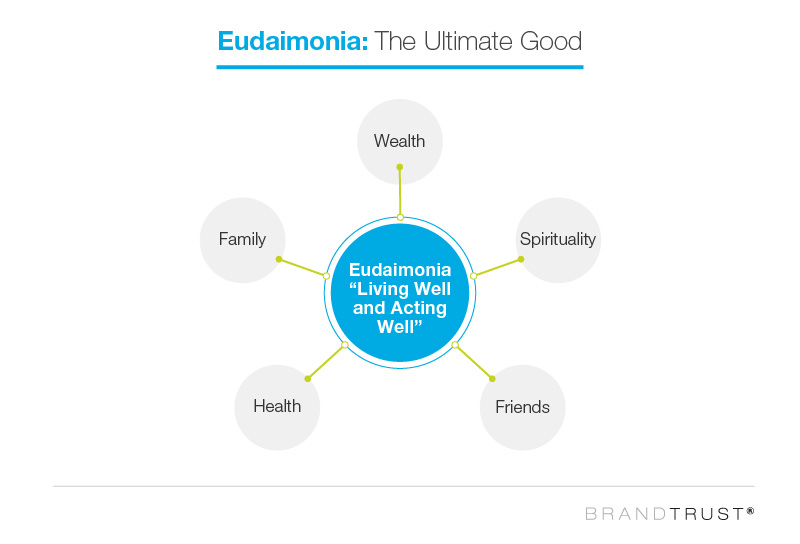
Eudaimonia is often translated to human flowering. The opposite, and least desierble condition was akrasia (non-manegment, lack of self controll. -
Id like to add one more statement: i belive that the abrahamic traditions that focuses on free will (in other words, reject fate) and a very black and white view on morals are more harmfull and less logical.
-
1 hour ago, SirPalomides said:The naturalistic fallacy is a fallacy because there is nothing outside of nature so it fails to provide an ethical standard. If you can do it, it's natural. I don't think that's what Marcus Aurelius and the Stoics were quite on about though- they are thinking in terms of providence and fate, their concept of nature is sufficiently broad to account for all kinds of activity.
The very fact that there is nothing outside of nature, or you may call it cosmos, is why it appeals to me. It is about oneness, it seems. We are connected. Seperating mankind from nature is harmfull in my eyes. Alan Watts said something along the lines of: just as an apple tree apples, the earth peoples. And lastly, it would be stange to put a moral label on a lion killing an antilope.
QuoteMyself, I find the Stoic system ultimately rather sterile and oppressive, particularly due to its fatalism and asceticism. It proposes essentially a self-induced dissociation, an intellect isolated from its own embodiment. It's a good fit for a civilization that revels in work, duty, violence, the ceaseless grind, misery. I prefer the Epicureans and their Garden.
I to belive in faith. As did the pagan europeans. The tree norns, the moirar and the parcae, from norse, greek and roman tradition respictivley, snd deciding the fate of men.
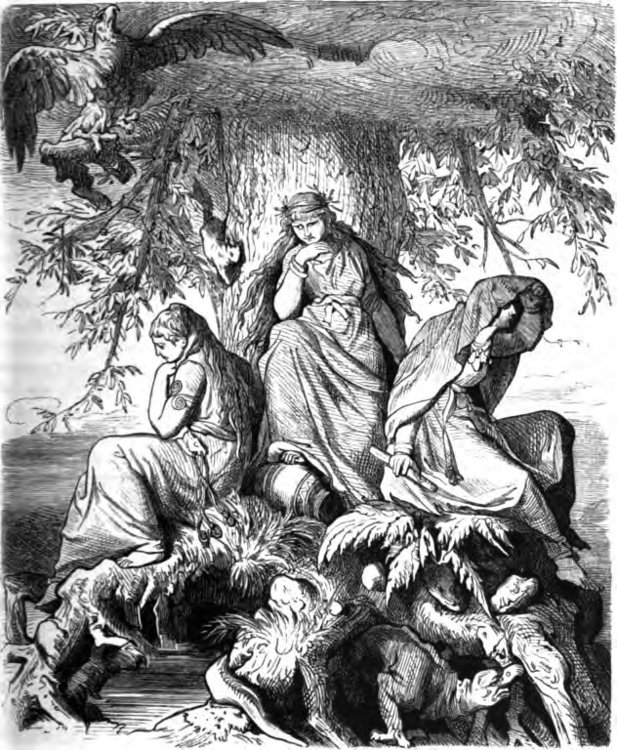
The Norns Urd, Verdandi, and Skuld under the World-tree Yggdrasil” by Ludwig Burger (1882)QuoteThere are exactly three of them, and their names suggest their ability to construct the content of time: one is Urd (Old Norse Urðr, “The Past,” and a common word for fate in and of itself), the second Verdandi (Old Norse Verðandi, “What Is Presently Coming into Being”) and the third Skuld (Old Norse Skuld, “What Shall Be”). They live in a hall by a well (Urðarbrunnr, “Well of Fate”) beneath Yggdrasil, the mighty tree at the center of the Norse otherworld, which holds the Nine Worlds in its branches and roots.[2]
https://norse-mythology.org/gods-and-creatures/others/the-norns/
If you accept cause and effect, then there is no free will and everything is predetermined, or you might say destined.
QuoteMyself, I find the Stoic system ultimately rather sterile and oppressive, particularly due to its fatalism and asceticism. It proposes essentially a self-induced dissociation, an intellect isolated from its own embodiment. It's a good fit for a civilization that revels in work, duty, violence, the ceaseless grind, misery. I prefer the Epicureans and their Garden.
I lack the knowledge to respons to this, but if you have something to add, im listening. Does any beliefs of a culture with less focus work and radically different attitydes to these concepts, come to mind?

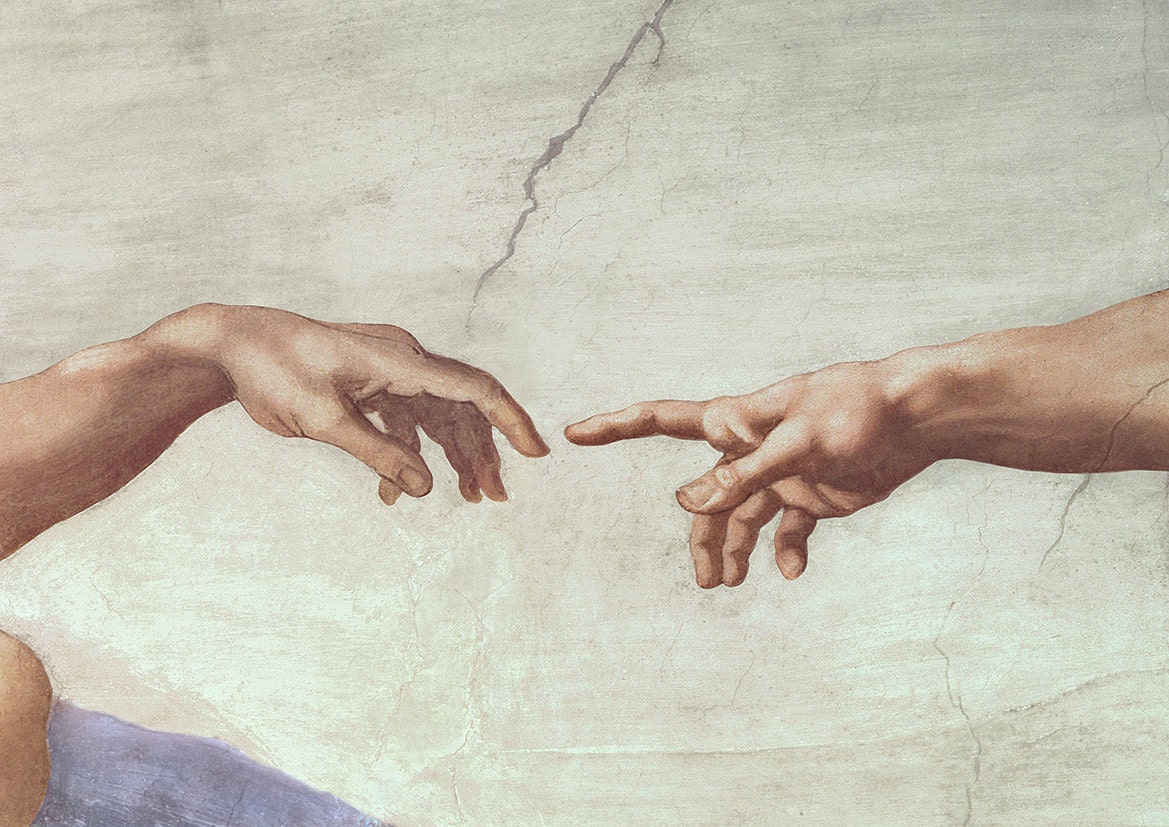
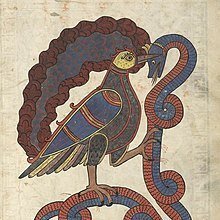
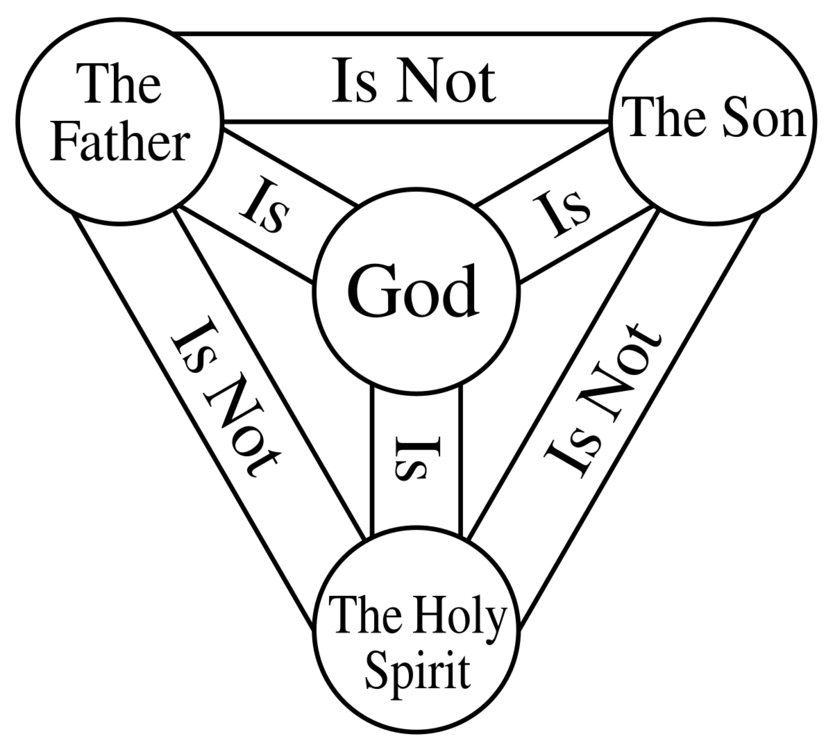
Which books sit on your nightstand?
in General Discussion
Posted
This one needs no introduction:
but to he honest i probally wont read it.
And then we have this one:
Translates to something like «the ancients on the train,» basically a quick overview of greek philosophy for people with amnesia.
On the list: some esoteric book that i dear not mention and tao te ching, mainly for personal interrest but also for respect for this primarily eastern forum.
leggo